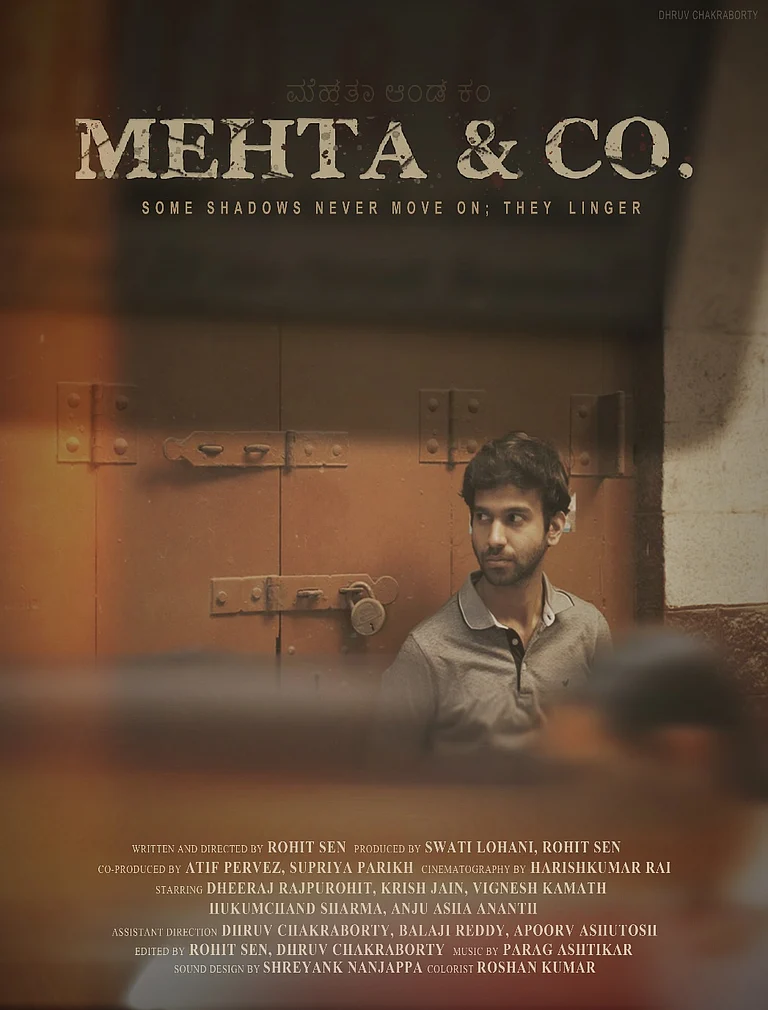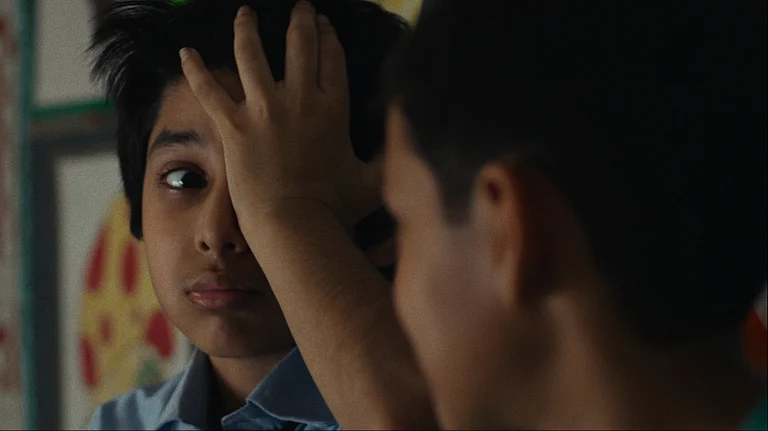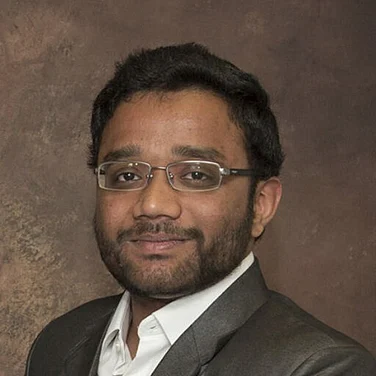Life’s success stories have different parameters, and when the cyclical nature of it completes the full spectrum, it's often a spectacle. In India, millions of residents live with the constant worry of what’s next. It's where dreams take root, and for Vikrant Patankar, it was his dream that shaped the course of his life.
Coming from a humble background in the suburbs of Mumbai, Vikrant grew up in a chawl and was often embarrassed by inviting school friends at home, leading to nurturing an introverted nature. However, he had a creative mind from early childhood, which helped him embark on a creative streak, winning drawing competitions from kindergarten onwards. “Making things always excited me,” recalls Vikrant, explaining his love for creative industriousness, an aspect that would go on to become the foundational aspect of his career years later.
The Early Years
“I was 4 when my parents took me to a cinema hall for the first time,” he reminisces, pointing out towards his earliest introduction to the world of audio-visual storytelling. Cinema excited him, and within a year, Vikrant wanted to make a film and project it for neighbourhood kids after watching an episode of the popular television show M.A.D., where the host, Rob, detailed how to create a DIY projector using 35mm film and a flashlight. “By the time I was only 9 years old, I was shooting short films on my mother’s dumbphone, from stop-motion to magic tutorials to basic VFX experiments.,” he says.
Vikrant’s creative streak continued with him starting a tech YouTube channel when he was 13, earning approximately INR 20,000 per month. “That was huge for a kid in a chawl,” Vikrant says, recalling how it helped to cover his family’s household expenses for a few months. His love for cinema and technology grew, and Vikrant decided to explore tech journalism and engineering, simultaneously with making films. He bunked college to attend MAMI (Mumbai Film Festival), and soon after, he directed a play and a short film that went on to win the Best Play and Best Short Film in his college.
“I decided in favour of filmmaking as a profession after finally watching La La Land,” he reveals, “When I watched it, I realised filmmaking was the thing that had been hiding in plain sight. The urge to tell larger-than-life stories suddenly felt obvious. Since then, I've been writing short films, assisting indie directors for free, and making videos whenever I can,” he added.
The Professional Streak
Vikrant recalls the time after his 12th boards, when he seriously considered applying to film school, but only to be disheartened by the massive fees structure. “The tuition fees were around INR 20 lakhs a year,” he says, while also adding that Engineering only costs INR 10,000 every year. “So I chose that,” he explained.
While Vikrant joined Engineering, his love for filmmaking drove him to dedicate the majority of his time into writing scripts, editing videos, watching films, and going to every film festival he could in Mumbai.
His first step towards professionalism came during the COVID-19 pandemic, when Vikrant began freelancing as a product designer for international studios based out of London, Berlin, and Amsterdam. “It paid well,” he says, something that helped him to support his family. A couple of years later, he sent a message to a well-known international startup founder, asking for a visa letter because he wanted to fly abroad just to watch Interstellar in IMAX 70mm for its 10-year anniversary, and make a video essay about it. While he did not respond, it started a chain reaction, coming full circle in only a few months.
The founder announced his search for a filmmaker a few months later, but Vikrant chose not to go the traditional route of applying through a form submission. He went on to pitch himself publicly with a cinematic video that he posted on X. The video went viral and landed in front of Soham Ganatra, the CEO of Composio, a US-based AI startup. “We spoke,” Vikrant smiles, “I eventually joined as the founding filmmaker. Looking back, that one decision to make things regardless changed everything,” he laughs.
Composio & Future Plans
At Composio, Vikrant creates cinematic launch films, brand narratives, and experimental short-form content inside a tech company — uniquely positioning him in a rare vantage point at the frontier of films, AI, and startups. However, he still wants to create narrative short films and feature films. “It’s my long-term plan,” he reveals, saying, “I am already developing my debut short film, which I hope to begin around 2026,” he adds.
Vikrant credits Composio for shaping his worldview in numerous aspects like how to work fast, adapt, handle massive budgets, collaborate with engineering teams, and understand how audiences behave online. “I have also seen AI up close, so I have a very practical view of where it helps and where it does nothing,” he says. Vikrant believes that these aspects will make him a better filmmaker when he moves towards making his own films, and maintains that these two worlds are not as separate as many would believe. “This tech-driven phase is giving me tools, discipline, and clarity, and the traditional filmmaking phase will be where I apply it to stories that are deeply personal to me,” he remarked.
Role of AI in filmmaking
For budding filmmakers, storytelling is often the foundational challenge to success. Vikrant lays out a streamlined way towards the new wave of filmmaking. “AI helps me mainly with the process rather than the story,” he says. “It speeds up a lot of things that used to take hours, like generating references, building moodboards, organising footage, transcribing long clips and assembling rough edits. If you allow it, AI can also help sketch emotional beats or alternative story directions, so I'm not anti-AI in that sense,” he explains.
However, he also stresses the importance of originality, saying that artistic excellence never stems from convenience. “The best work usually comes from doing something regardless of the difficulty or the lack of perfect conditions. Thatʼs the most human part of art. Even when everything is available at your fingertips, artists still follow the path that feels personal. As Scorsese says, the most personal is the most creative,” he opines.
According to Vikrant, AI can support the process, but it can't replace the internal compass or taste an artist develops over years of personal experience. He is a staunch believer in AI being a tool for workflow, but not for meaning. He also emphasises that while businesses and agencies may use AI heavily because efficiency is their priority, it's not the primary goal for artists, who emphasize optimizing for meaning and the things that matter to them personally.
Technological transformation in AI-based filmmaking
At its present capacity, restrictions remain in Artificial Intelligence, as we know. Vikrant also supports the notion, saying, “The biggest jump will happen when AI understands moving images the way humans do. Not just single frames, but motion, pacing, rhythm, sound, and emotional continuity together. When that becomes reliable, pre-production and editing will become much faster. Real-time video generation will also change how filmmakers experiment because it will let you test many ideas quickly, almost like sculpting with clay.”
He also feels that the world will witness agent-style workflows that handle tedious parts like syncing audio, organising footage, or building assembly cuts. As per him, businesses will adopt this aspect immediately because they are efficiency-driven. However, he warns that for filmmakers, this shift would rather become cultural than technical. “As AI gets better at producing synthetic images, audiences will value what's real far more than before. Behind-the-scenes footage, real sets, real imperfections, and real performances will matter more. Ironically, the rise of AI will make the human side of filmmaking feel even more valuable. "Proof of reality" will become a thing,” he predicts.
Vikrant also says that the tools will continue to evolve, as is the law of natural order, but it will be personal test and conviction that will be more important than ever. In the long run, he feels that artists will prioritize work that feels honest and handmade, and predicts that the transformation of cinema will stem from therewithin.
About Vikrant Patankar
“Vikrant Patankar is an indie filmmaker from Mumbai, India, currently serving as the founding filmmaker at a prominent US-based AI firm, Composio. Born and brought up in Mumbai’s suburban area, Vikrant has always prioritised creativity, something that led him to begin his YouTube channel at an early age. With his earnings from YouTube, he began to support his family before breaking into the limelight when one of his creative films went viral on X (formerly Twitter), which brought international attention to him. Soon after, he joined Composio as the founding filmmaker, taking his creative brilliance beyond domestic borders. A cinema enthusiast, Vikrant is working simultaneously on his debut short film, which will be out later in 2026.”






















